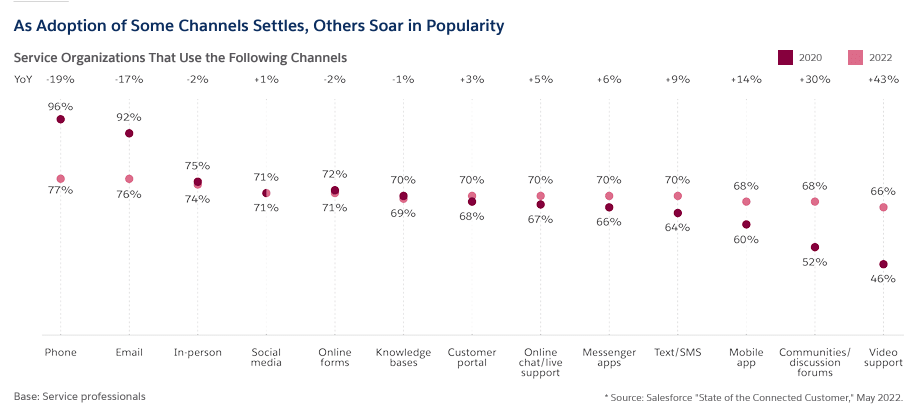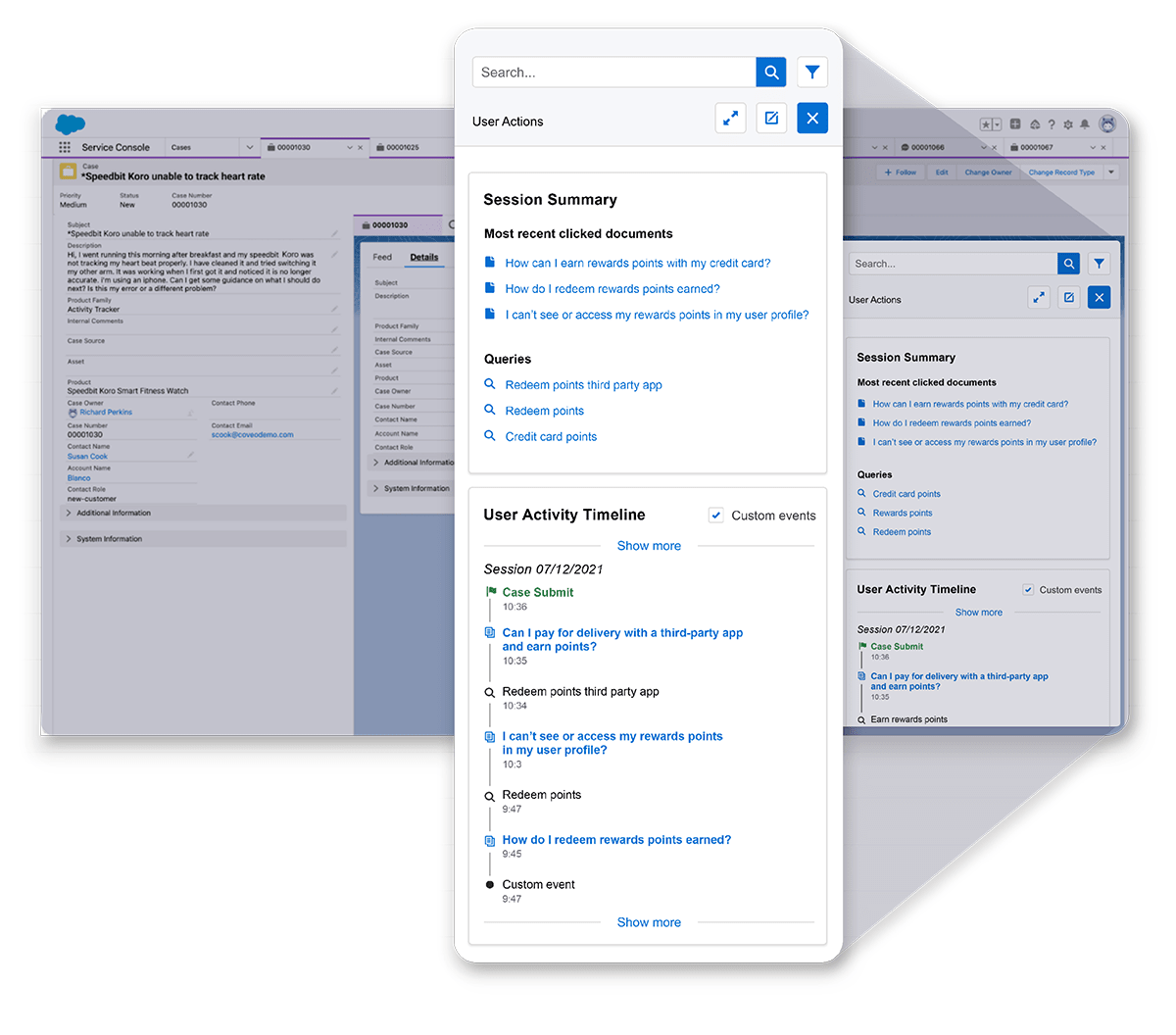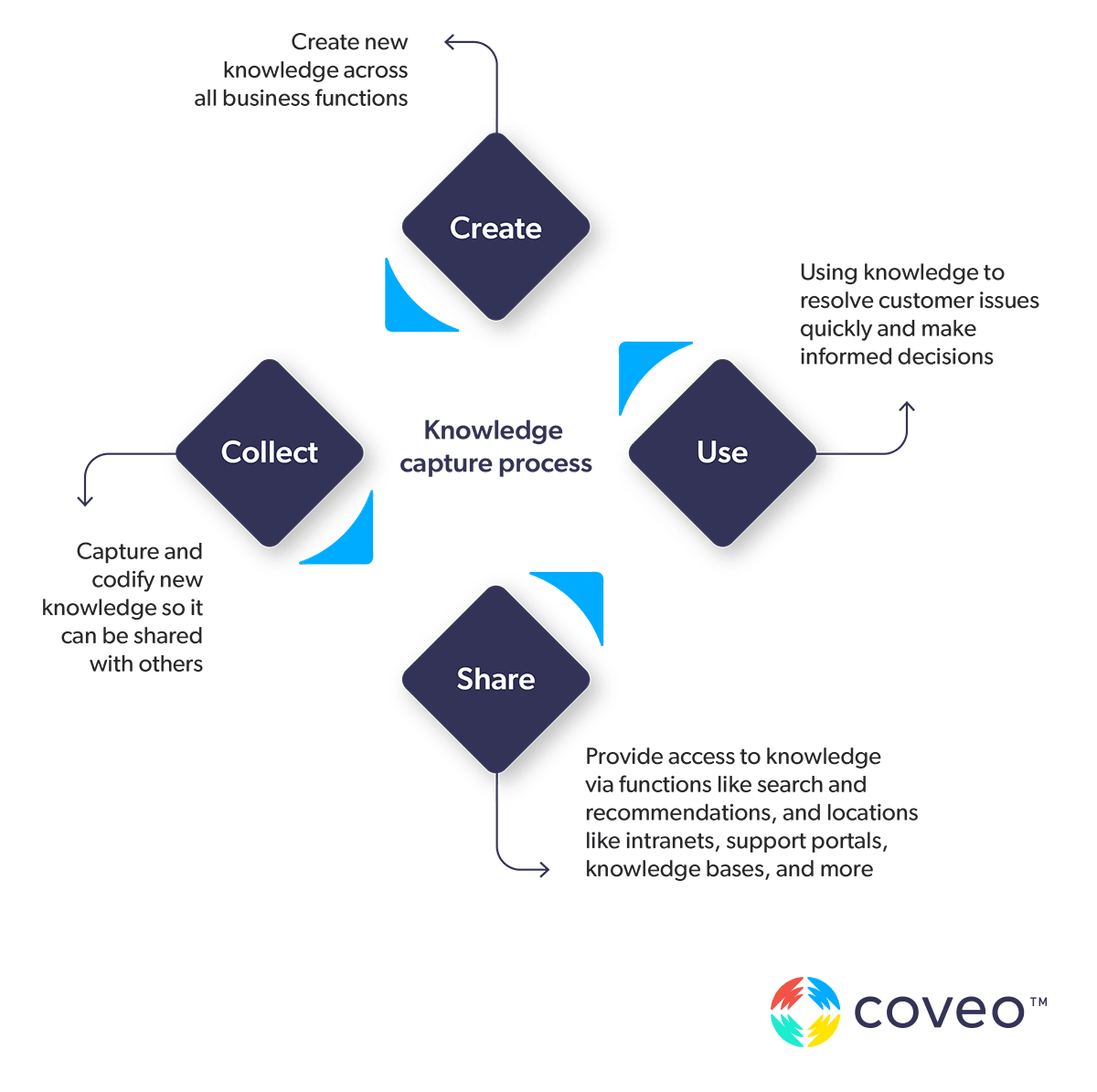How often do your agents answer the same support question over and over? Or search for the answer to a question that another team member has already solved?
For most customer support organizations, the answer is: too often.
This is the role of customer service knowledge management.
What Is Customer Service Knowledge Management?
Treat knowledge management like an umbrella discipline. It’s a discipline supported by dedicated team members, high-level strategy, and dedicated technology. Within that discipline you’ll find more targeted efforts and outcomes, such as employee knowledge management, knowledge base and documentation, etc.
Customer service knowledge management means making your organization’s collective knowledge available to those who need it, whether that’s your customers or agents. Here are some example scenarios that customer service knowledge management supports:
- Agents searching for a solution while talking or chatting with a customer
- Customers describing their issue on a ticket submission form
- An AI chatbot fielding customer inquiries, connecting customers with answers, or handing interactions off to a live agent
- Customers searching the website for information, answers, or products
In recent years, the demand for knowledge management has intensified.
“If anything, COVID-19 has proven and solidified the importance of knowledge management,” said Deryn Ollivier, Coveo’s Lead Knowledge Manager. “Suddenly, we all had to work from home, but didn’t necessarily have information that was accessible remotely. It was a big catalyst for the knowledge management field in general.”
Yet according to The State of Knowledge Management in 2023 from KMWorld, adoption of knowledge management practices has stalled. For example, 44% of customer service departments still don’t use knowledge management today.
In this post, we’ll clarify how knowledge management enhances customer support, provide some use cases that demonstrate effective approaches, and cover some best practices in customer service that can help your company implement Knowledge-Centered Service (KCS)*. We’ll also discuss why good knowledge management is important as companies continue to adopt innovative technologies like generative AI.
How Does Knowledge Management Improve Customer Service?
Today, customers interact with brands across multiple channels. And those channels are increasingly digital. According to the Fifth State of Service Industry Report from Salesforce, 57% of customers prefer to engage companies through digital channels, and 59% prefer self-service tools for simple questions and issues. To provide a harmonious and connected experience across those channels, brands need knowledge management.

By making knowledge easily accessible, you can:
- Reduce support costs
- Speed up issue resolution times
- Improve customer satisfaction
- Drive new business to your company
A comprehensive knowledge management system, combined with the right AI-powered search platform, can do the following:
- Facilitate customer self service: Customers can independently troubleshoot and find answers through customer knowledge, with minimal live assistance from the enterprise’s customer service team.
- Enable collaboration across teams: Customer service reps, product managers, and other team members can create, share, and update knowledge base articles and documentation from a central knowledge repository.
- Track and optimize your customer service process: Customer service metrics like average resolution time, customer satisfaction scores, and content duplication help you identify areas for improvement and knowledge gaps that need filling.
- Support service automations: Knowledge management supports customer self-service. One of the most prominent forms of customer self-service is generative answering, which is only as good as the data (and content) you feed it.self-service is generative answering, which is only as good as the data (and content) you feed it.
KCS Is Good Place to Start
Knowledge management programs also provide checks and balances for customer service teams, especially ones that practice KCS. Said Ollivier, “We use knowledge coaches as an aspect of [KCS]. Coaching isn’t their full-time job, but they’re responsible for coaching our agents on KCS article creation.”
In KCS methodology, an agent must thoroughly review whether a document or knowledge article supporting the answer to a customer issue doesn’t already exist. This emphasizes avoiding duplication as much as possible.
“Once you’ve determined that nothing exists to resolve a given problem, you can create the article,” said Ollivier. “The idea is that when an article is created, it shouldn’t have to be made again. Then every time you reuse an article, you review it to make sure it’s up to date, relevant, the link still works, etc.”
This ongoing quality assurance process makes it easier to find a customer service knowledge base article that answers customer questions when you need it and continuously keeps your knowledge repository accurate.
Relevant Reading: 5 Best Practices for Multichannel Knowledge Management
It Empowers Customer Support Agents
Even with deep product knowledge, customer support agents need access to knowledge resources–documentation, case notes, and other information—so they can resolve cases quickly. Typically, this results in a lot of context-switching across different screens.
This is not-so-affectionately called “swivel chair syndrome”.
By unifying access to your organization’s collective knowledge across information silos, you ensure that team knowledge is at their fingertips.
Combined with AI-powered search, knowledge management lets your support reps quickly sort through available institutional knowledge (sometimes called “tribal knowledge”) to find the best resolution to their customer’s issue.
Here are a few different use cases that demonstrate how KCS — bolstered by the combination of knowledge management and intelligent search — empowers service agents and customers to resolve issues quickly.
Use Case 1: AI-enabled search speeds up ticket resolution
Salesforce uses Coveo’s AI-driven search across its knowledge base when helping customers. CRM-embedded Insight Panels, accessed by Salesforce’s agents for roughly 75% of support requests, eliminate the need for manual searches and is a huge time saver.
Being able to resolve customer issues quickly and with empathy has helped Salesforce achieve its highest-ever CSAT scores.

Use Case 2: Self-driven support frees agents to focus on complex tickets
Xero, a cloud accounting platform for small businesses, uses Coveo to empower high-quality customer support. About 95% of questions asked at Xero are answered by self-service help content powered by Coveo, deflecting over a million queries from Xero’s support team each month. Proactive AI-driven content recommendations help customers find what they’re looking for as they’re searching.
And just last year, Xero upped their game by implementing Coveo Relevance Generative Answering, to, in the words of Executive General Manager Nigel Piper, “deliver a beautiful, conversational answer to our customers.”
Because of this, Xero’s customer relations specialists spend significantly less time answering simple repetitive questions. Since most customer interaction is fully automated, Xero’s specialists — many of whom have accounting degrees — focus on solving complex customer issues.
This approach is transforming Xero’s customer relationship management, allowing the company to focus on scaling from 2 million customers to over 10 million in the coming years.
Relevant Reading: How Xero Increased Case Deflection with Coveo Relevance Generative Answering
Use Case 3: Knowledge-centered service empowers new and veteran employees
A KCS approach helped athenahealth, a US health company with 160,000 providers nationwide, share insights from veteran employees, efficiently train new employees, and use insights from their KCS program to make lasting change in the organization.
The first step was to identify holes in support content that led to customer miscommunication. They also analyzed how agents on the customer support team were searching for content and examined how any relevant, existing content was being missed.
Closing content gaps and implementing Coveo’s AI search technology helped athenahealth improve case deflection rates. It also improved employee engagement rates. By empowering employees — new and old — to find content quickly, each customer service agent could focus on the customer and provide a better overall customer experience.
How Does Customer Service Knowledge Management Impact Generative AI?
Large language models (LLMs), the technology underpinning generative AI applications, can help customers and agents find the needed answers more quickly because they excel at processing, retrieving, and summarizing data. Most companies are sitting on large caches of data in many forms. Across your company, you have information stored in siloed repositories like intranets, voice and video recordings, CRMs, and email (to name a few).
This is the data that can “feed” your GenAI solution so that it generates appropriate answers. But you need to take steps to clean up the bad data (a.k.a., the “garbage”) before incorporating an LLM or a GenAI tool into your information workflow. Content governance in the form of knowledge management relies on creating good practices around your organization’s content.
It ensures that domain experts are involved in content management, all employees are empowered to create and share content, and that content is easily searchable. Learn more about strategies for feeding your LLM.
Use Case 3: Knowledge-centered service empowers new and veteran employees
A KCS approach helped athenahealth, a US health company with 160,000 providers nationwide, share insights from veteran employees, efficiently train new employees, and use insights from their KCS program to make lasting change in the organization.
The first step was to identify holes in support content that led to customer miscommunication. They also analyzed how agents on the customer support team were searching for content and examined how any relevant, existing content was being missed.
Closing content gaps and implementing Coveo’s AI search technology helped athenahealth improve case deflection rates. It also improved employee engagement rates. By empowering employees — new and old — to find content quickly, each customer service agent could focus on the customer and provide a better overall customer experience.
How Does Customer Service Knowledge Management Impact Generative AI?
Large language models (LLMs), the technology underpinning generative AI applications, can help customers and agents find the needed answers more quickly because they excel at processing, retrieving, and summarizing data.
Most companies are sitting on large caches of data in many forms. Across your company, you have information stored in siloed repositories like intranets, voice and video recordings, CRMs, and email (to name a few).
This is the data that can feed your GenAI solution so that it generates appropriate answers. But you need to take steps to clean up the data before incorporating an LLM or a GenAI tool into your information workflow. Content governance in the form of knowledge management relies on creating good practices around your organization’s content, which in turn supports better GenAI experiences.
It ensures that domain experts are involved in content management, all employees are empowered to create and share content, and that content is easily searchable.
Relevant Reading: Your Blueprint to Generative Answering in Digital Self-Service
Best Knowledge Management Practices for Customer Service
Knowledge-centered support requires knowledge sharing among employees to be effective. Here are some knowledge management best practices for customer service that can help you get started:
1. Prioritize Accessibility
Ensure that your knowledge is accessible to every customer and contact center agent. This may require an audit to identify where content is housed internally and externally (e.g., Google Docs, spreadsheets, CRMs, etc.). You may discover some common roadblocks to effective knowledge management:
- “Tribal” knowledge stored (or hoarded) by specific teams or individuals
- Valuable content that exists but isn’t showing up in search experiences
- Siloed data that’s degrading the performance of your service chatbots
2. Make KM Part of Agent Training
Agents should understand the KCS methodology, from creating documentation to the review process. If you don’t have KCS methodology in place, you can still make knowledge management best practices part of your customer service agent training process. For example:
- Where and how to find information when talking or chatting with a customer
- Where and how customers find information when they have an issue
- How to submit new article or edit requests to the knowledge base team
- Top five or ten most-used KM resources to bookmark
- How to attach knowledge base resources to cases/case responses
Relevant Reading: How to Use Insight Panel Analytics for Agent Coaching
3. Unify Your Data Sources
Use a unified index (that also respects roles and permissions) to make access to content universal. This is critical. If you can implement a knowledge management system that operates on a unified index, you stand to realize a few important benefits:
- Agents spend less time searching different content sources for answers
- Customers find more relevant and timely answers
- You more accurately spot content gaps
- You can unleash the full power of an AI-powered relevance engine
4. Make Your Content Discoverability
All of the aforementioned best practices support a least-click approach to content discoverability. That is, make it as easy as possible for agents and customers to find the answer they need with the least amount of clicks. To really scale this experience, start looking into how AI can reduce the effort required to find answers. For example:
- Generative answering
- AI interaction and content analysis
- AI-powered content recommendations
- Reliable, accurate, and contextually relevant self-service experiences
4. Optimize Continuously
KCS requires all agents to constantly review and revise the knowledge base, avoid duplication, and ensure knowledge articles are current and relevant. It also gives leaders data and insights to improve the knowledge management program.
Because customer expectations are constantly evolving, so too must customer service. Customer service knowledge management is about creating efficiencies. It’s about empowering your agents with tools and processes that let them focus on delivering the best possible customer experience.
“Knowledge management focuses on being more thoughtful about where you’re holding your organizational knowledge,” explained Ollivier. “It’s about curating that knowledge so if people are working from home, you have an intuitive structure and organizational system so they can find that document or knowledge article.”
Again, AI can play an essential role in continued knowledge management optimization.
Good Customer Service Creates Customer Loyalty
By being more thoughtful about knowledge storage and accessibility, companies can provide faster, more consistent, and more personalized service. In turn, this creates happy customers who are more likely to become brand advocates and continue doing business with you.
“[KCS] is all about measuring the impact of the documentation and the knowledge articles and whether this information is affecting cases that are being entered,” said Ollivier.
“It’s about measuring our own knowledge base to make sure that we have relevant information that’s getting updated, attached, and sent to the client.
“KCS is about actually reaching the customer.”
Learn more about how Coveo can help enhance and amplify your customer support function.
*KCS® is a service mark of the Consortium for Service Innovation™




